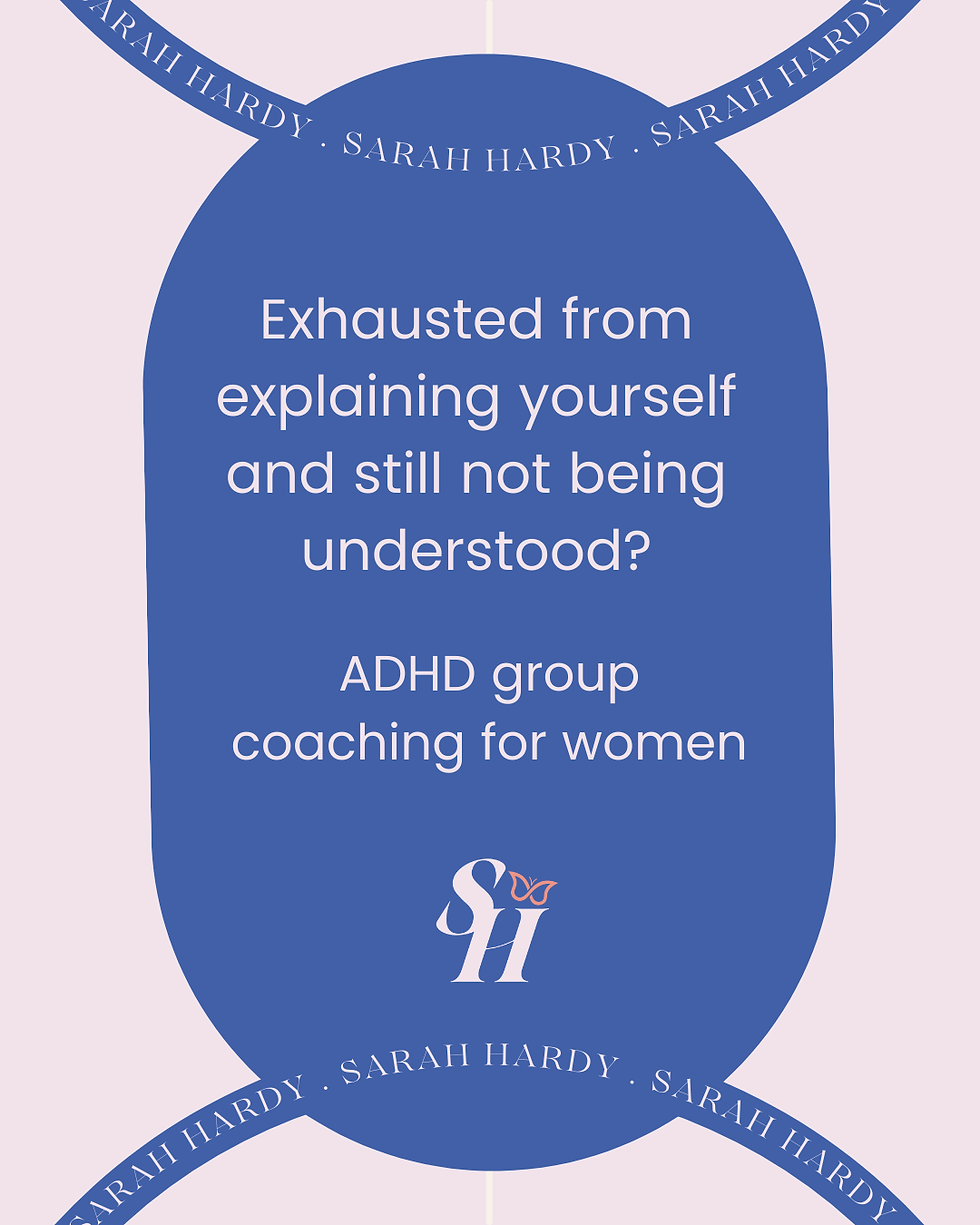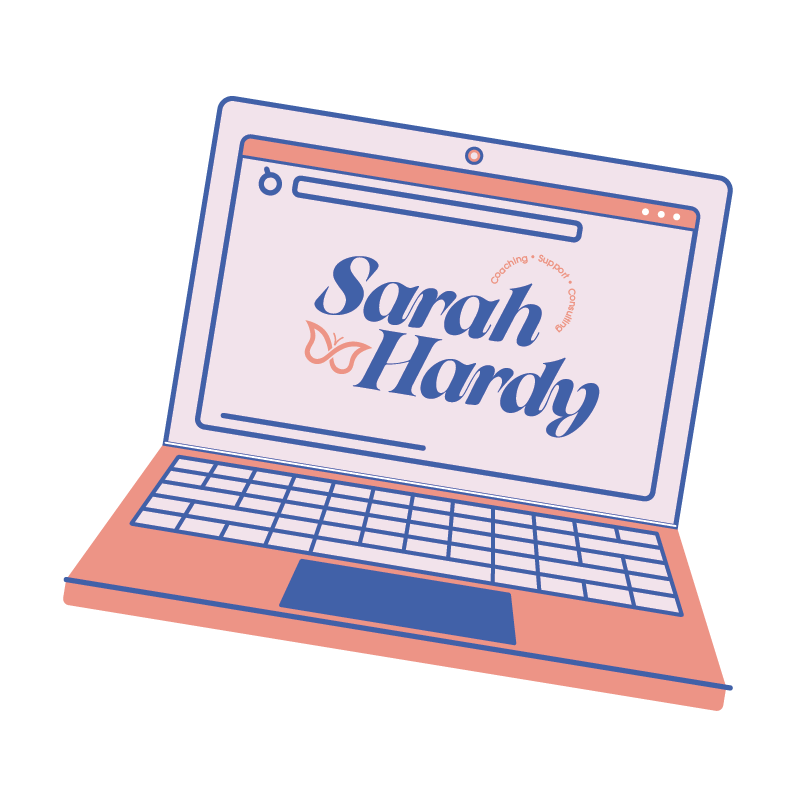Coaching vs Therapy: How to Know What You Actually Need
- Sarah Hardy
- Jun 10
- 3 min read
If you’ve been feeling stuck, exhausted or like something needs to change but you're not sure what kind of support to look for, you’re not alone. One of the most common questions I hear from neurodivergent adults is:“Do I need a coach or a therapist?”
It’s a valid question, especially if you’re late-diagnosed, newly self-discovered, or carrying years of internalised self-doubt. You might not be in crisis, but things aren’t working either.
So where do you start?
This guide will help you understand the difference between coaching and therapy, how to tell what you actually need, and how to find the right fit, without overthinking it.
What’s the Difference Between Coaching and Therapy?
At a very simple level:
Therapy helps you explore the past, process trauma, and work through emotional pain or current mental health struggles.
Coaching helps you build self-awareness, and take action in the present so you can move forward.
But the lines aren’t always so clear, especially for late-diagnosed ADHDers or Autistic adults who’ve been masking, overcompensating, or silently burning out for years.
Here’s a breakdown that may help:
Therapy | Coaching |
Explores your past, patterns, and emotional wounds | Focuses on your present and future goals |
Often rooted in clinical models | Based in psychology, behaviour and mindset |
Helps with trauma, anxiety, depression, complex emotions | Helps with executive function, motivation, structure, self-trust |
Works towards healing | Works towards change, clarity and progress |
Often long-term and open-ended | Can be short-term and goal-focused |
Both can be transformational. The key is what you need right now.
Signs You Might Benefit From Coaching
Coaching is a good fit if you:
Struggle to plan, prioritise, or follow through
Are stuck in cycles of avoidance, burnout, or self-sabotage
Feel overwhelmed by tasks but don’t want another “productivity system”
Know what you want to do but can't seem to get going
Want to work on boundaries, routines or self-leadership in a practical way
As a neurodivergent coach with lived experience, I understand how ADHD, Autism and burnout show up in real life and how to work with your brain instead of against it.
What Coaching with Me Looks Like
My coaching isn’t about goal setting and cheerleading.
It’s grounded in evidence, self-awareness and compassion.
You’ll get:
Space to unpick what's really going on
Strengths-based tools like the VIA Strengths Profile
Insight into your sabotaging patterns using Positive Intelligence
Support regulating your nervous system, not just managing your diary
Realistic plans you can actually follow through on
Someone who understands how executive dysfunction, masking and RSD can derail even the best intentions
And if therapy feels like the better next step? I’ll say that, too.
When Therapy Might Be a Better Fit
Therapy is likely more appropriate if you:
Are in acute emotional distress
Are experiencing intense anxiety, depression or trauma symptoms
Need space to process grief, abuse, or significant life events
Want to explore deep emotional patterns or identity questions in a contained space
Therapy can also complement coaching. Many of my clients do both using therapy to heal and coaching to move forward.
You Don’t Need to Be in Crisis to Deserve Support
This is the myth that stops so many late-diagnosed or self-diagnosed neurodivergent adults from reaching out. You don’t have to be “bad enough” for therapy or “sorted enough” for coaching.
You just need to feel ready for something to shift and open to a different way of doing things.
Want to Explore Coaching?
If you’re tired of spinning your wheels, trying to do it all yourself, or feeling like you’re constantly falling short, coaching might be what helps you get unstuck.
I offer 1:1 coaching for neurodivergent adults looking for calm, practical, human support.
👉 Book a free call here and let’s talk about what would actually help.





Comments